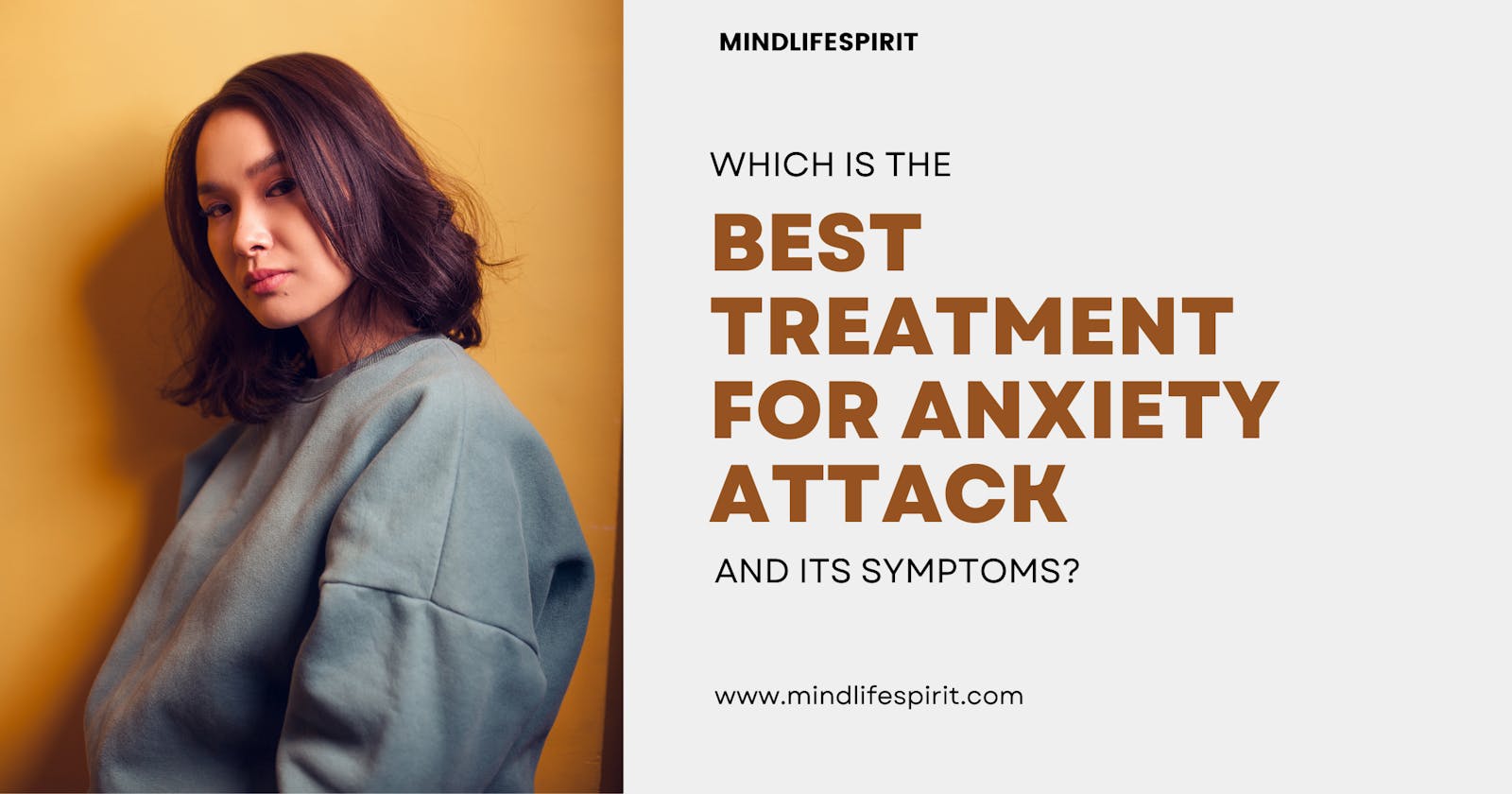Anxiety attacks, also known as panic attacks, can give you overwhelming and uncomfortable experiences. So seeking proper treatment for anxiety attack is crucial for managing it and improving overall well-being. In this Mind Life spirit's blog, you will get to know about the best treatment options for anxiety attacks and their symptoms.
Psychotherapy
Psychotherapy is talk therapy for the treatment for anxiety attack. Medical professionals widely recommend this treatment for anxiety attacks. CBT allows individuals to recognize and challenge harmful thought patterns and thoughts that contribute to stress. It also focuses on developing coping strategies and relaxation techniques to manage anxiety symptoms.
Medication
In some cases, medication alleviates the symptoms of anxiety attacks. Get the best medication for anxiety: SSRIs help regulate neurotransmitters in the brain and are usually taken daily. Due to their propensity for dependence, benzos are fast-acting drugs that offer rapid comfort but are only given for short-term usage. Best Medication For Anxiety
Relaxation Techniques
Learning and practicing relaxation techniques can significantly reduce anxiety symptoms and help prevent anxiety attacks. Deep breathing exercises, progressive muscle relaxation, and mindfulness meditation are effective relaxation techniques that promote a sense of calm and relaxation.
Lifestyle Modifications
Making certain lifestyle modifications can have a positive impact on anxiety levels. Engaging in activities such as jogging, swimming, or dancing can release endorphins, which are natural mood enhancers. It is essential to establish a routine that includes self-care practices and prioritizes mental well-being.
Support Networks
Building a strong support network can provide invaluable assistance in managing anxiety attacks. Seeking support from family, friends, or support groups can help individuals feel understood and less alone in their struggles. Talking openly about anxiety with trusted individuals can help alleviate stress and offer different perspectives on coping strategies.
Symptoms of Anxiety
Here are some common symptoms of anxiety:
Physical Symptoms: Anxiety has some physical sensations that can be uncomfortable. It includes sweating, trembling or shaking, shortness of breath, chest tightness or pain, dizziness, stomach upset, headaches, and fatigue.
Cognitive Symptoms: Anxiety can affect a person's thoughts and cognitive processes. Racing thoughts, constant worry, and an inability to control or stop worrying are common cognitive symptoms.
Behavioral Symptoms: Anxiety can influence a person's behavior and daily functioning. Avoidance behaviors may develop as individuals try to evade situations or triggers that provoke anxiety. They may withdraw from social activities, isolate themselves, or engage in compulsive behaviors as a means of seeking relief from anxiety.
Conclusion
There is no need to worry if you suffer from anxiety because, with proper treatment and support, it's easy to manage their symptoms. Psychotherapy, medication, relaxation techniques, lifestyle modifications, and support networks are all valuable tools in the treatment of anxiety attacks. Seeking professional guidance from healthcare providers or mental health specialists is essential to determine the best treatment for anxiety attacks and promoting overall well-being. You can also visit MInd Life Spirit's website and explore more about anxiety or depression.
